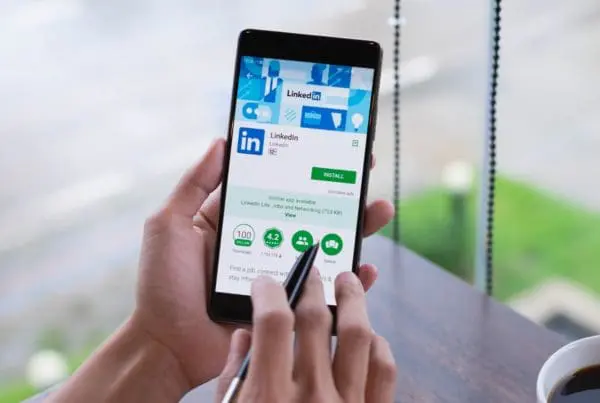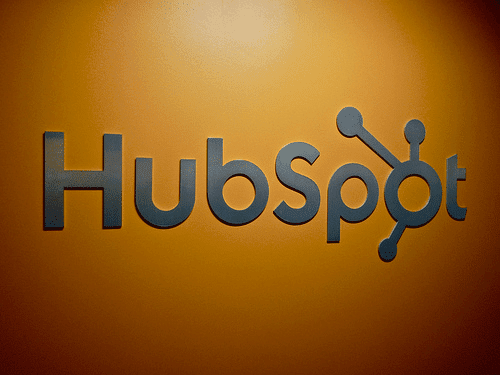Startups are typified by big ambitions with small marketing budgets, and with few employees wearing many hats. Here are some marketing tips that don’t have to cost a bundle, and that can drive efficiency from expert bloggers around the web. This is by no means exhaustive or a blueprint for success, just some ideas that have worked for others and might work for you.
Focus (from Jacob Cass at Just Creative)
Choose your targeted audience. Don’t try to please everyone as this road leads nowhere. Let us quote Sally Hogshead’s book “Fascinate”: “If you’re not generating a negative reaction from someone, you’re not fascinating anyone.” Icebergs don’t freeze overnight and you don’t have to be for everyone immediately. Start with something smaller, focus, and then broaden later. By the way, Facebook once was for students at specific universities, and look what is happening now. We, our teen kids, moms, dads, and even grandparents have their Facebook accounts. This is a bright example of the right focus.
Although you may not have a great deal to offer people in terms of discounts and giveaways in order to attract potential customers, you can present good, quality content that’s related to your target audience.
When it comes to social media, keep in mind that the most successful brands continually share interesting content that’s frequently not obvious advertising or a direct call for action. Successful companies often post and share ideas that their audience is most interested in. Take it one step further by actually interacting with your audience. Directly connect with your audience by responding to their comments about the content you’re submitting. This marketing process is huge in terms of building a long, trustworthy relationship with your potential customers.
Invest in Great Tools (from Rakesh Kumar at Your Story)
Now that you have the funds, you should start looking at working with premium tools that do a better job than the free ones that you’ve been using all this time. There are many good tools out there that can help you with SEO, lead generation, project management, and analytics. Give their free trials a spin and see which ones fit your requirements. Suggested tools: Moz Pro, Crazy Egg, WebEngage, SumoMe, Wishpond, Mixpanel, or Kissmetrics.
Web Presence (from Smart Insights)
In the age of social media and digital marketing, your web presence is both more important and more complicated than ever. It no longer requires just a functional site, you need a sophisticated website that performs multiple roles. Think of your website as a customer ‘application’ rather than just for information. You’ll also need a rich blog site, a dynamic Facebook fan page and the right Twitter page at a minimum. Some also need Web apps, Facebook apps, iPhone apps, and more.Get your Web presence right before launch! It’s all in the design, but content and structure are critical – embedded with the most relevant keywords, SEO tags, and visual elements.
While you’re focusing, focus on quality content (from Ivana Taylor at Question Pro)
With the continuing onslaught of mobile internet access and ecommerce, you need to ensure your website is fully responsive to all users’ devices, be they desktop, laptop, mobile, or tablet.
Engage with your followers (from Derek Miller in Entrepreneur)
Social media is a way for your startup to interact with current and future customers. Leverage your followers and make them feel like valuable members of your brand. Also, do not be afraid of social confrontation. Approach any complaint as an opportunity to show your brand’s customer service capabilities.
Lastly, do not hide from failures. You are a startup and are bound to face some hurdles along the way. Strategically approach these as opportunities to win over customers with good customer service and express your brand’s long-term vision as frequently as possible.
Incentivize People to Share (from Elisha Hartwig at Mashable)
If you want people to talk about your product or service, there’s nothing quite like giving them an incentive to do so. Offer an immediate discount for tweeting about your product or service or ask them to post about it on Facebook. Or, in exchange for “liking” your company, maybe they could receive some additional perk.
Another way to incentivize your customers is through a contest. Rafflecopter is a great resource to manage giveaways — you can embed the giveaway code anywhere, including your own site, then you can pick a winner at the end. Get creative with how you incentivize your customers, just make sure there is actual value in it for them.
Facebook Advertising: Finding your perfect audience using segmentation (from Venture Harbour)
Most people think of Facebook Ads as an acquisition channel for driving signups. The truth is that it’s also one of the best customer research tools we have available to us. Let me explain. There is no limit to how finely you can segment a Facebook advert. If you wanted, you could run identical adverts to 500 different demographic and psychographic audience segments. Using conversion tracking, you can see which demographics and psychographics then have the highest conversion rate on your service.
Here are a few examples. I work with many music startups and I’ve found time and time again that guitarists are typically more likely to sign up to a music service than a drummer or a bassist. For one of our clients, FanDistro, we found that 23-year-old Canadians are approximately 3x more likely to convert than 21-year-olds. We know that musicians in New Zealand are more likely to convert than Australians.
Facebook Ads are, in my opinion, the best way to quickly and affordably verify who your audience are and what your cost-per-acquisition is for different demographic groups.
Add Value Through Email Marketing (from Phong Ly at Tech.co)
Email marketing is not the same as spamming your customers’ inbox. Jokes aside, when used properly to help and provide value to users, email marketing can work wonders for promoting your startup.
Successful email marketing campaigns have a well-planned schedule so that people will know when to expect your emails and can look forward to updates from you. The trick to keeping this going is to focus on your target audience when deciding on the emails’ theme, template, and content to ensure what you send them will be helpful.
Our company uses emails to make the process of looking for a car more efficient. Users can sign up for alerts and we email them whenever we have newly-listed cars that match what they’re looking for. Users who sign up for our alerts are two to three times more likely to contact the sellers of cars on our site than non-alert users.
Blog (from Jenny Zhang at SpareFoot)
The concept of blogging has come a long way since 2003 when some of us still were publishing furious love poems on the blogging platform Xanga. Today, most businesses, organizations, and public figures operate blogs. It’s not just for show. With increased emphasis on rich, high-quality content for search engines, blogs have accrued clout as one of the best ways to gain visibility online.
If you’re a startup, blogging can be one of the most useful, valuable and inexpensive ways to get the word out about your company and its products and services.
Create SEO greatness (from Scott Makin at Kompyte)
The real lesson that Google wants you to take away from the SEO evolution is to pour your entire heart and soul into creating amazing content. Search engines exist to connect their users with the best possible resources to match their search inquiry. So what should you do? Create the best possible resources to match the search inquiries from the people you are trying to attract. Don’t write for SEO. Don’t write for robots. Don’t create content for the sake of creating content. And for god sakes, don’t talk about yourself so much! Create value for your brand’s audience, NOT FOR YOUR BRAND! No one cares about you, they care about themselves and solving their own problems. Help them solve their problems and you will be recognized as an expert authority in your industry and future customers will start lining up to hire the new prodigy. Your amazing content will get passed around and shared on social media because it’s effing amazing. This is the real kind of link building and it’s the only kind you should care about.
Want to learn more about online marketing and how it can work for your business? Get the ebook, Why You Need Marketing Automation.
Feel free to comment on what has worked for you!



